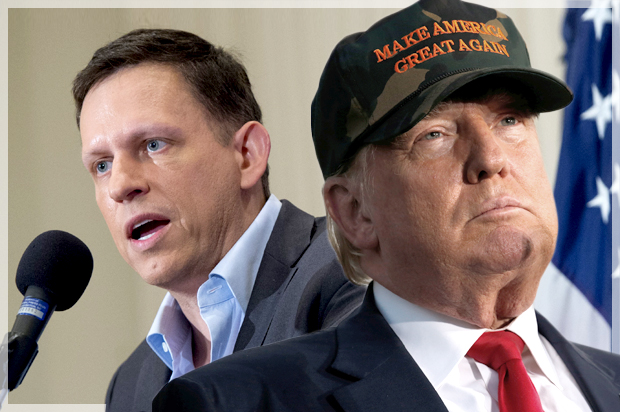For GQ’s December issue, political correspondent Jason Zengerle wrote a revealing profile of “America’s pre-eminent media menace,” Charles Harder, whose law firm represented Hulk Hogan in an invasion of privacy lawsuit that effectively sunk Gawker.
Though the lawsuit was bankrolled in large part by Peter Thiel — whom Gawker outed as gay in 2007 — “Harder refuses to discuss the details of the Silicon Valley billionaire’s involvement in the Hulk Hogan suit.”
And Harder maintains “he didn’t even know the identity of the person paying his client’s legal bills—other than it was an altruistic person who felt bad for the former wrestler.”
“A billionaire can target anyone. A non-billionaire can target someone. A crazy person can kill their estranged girlfriend, and that happens, and it sucks,” he said. “But just because billionaires exist and media companies exist doesn’t mean that journalism ceases to exist.”
Harder hinted — in indefinite terms — that he’d willingly represent President-elect Donald Trump’s threatened libel suit against The New York Times.
“It would be interesting if he’s a sitting president, as opposed to just a businessman,” he admitted, “but either way I would probably bring that case if I felt it had merit.”
Harder’s prominent role in the Gawker suit increased his name recognition among journalists, many of whom view the outcome as an affront to the First Amendment right to a free press.
“If they were to say something that’s factually false and hurts my business, they’re gone. They’re toast,” Harder warned, referring to any disgruntled media people. “And I’ve got a law firm. And what are my costs? A $400 filing fee? Okay. You know, I could put $10 million of value into a case, no problem.”
U.S. libel laws, Harder argued, place an unfair burden of proof on the complainant. He suggested axing the “actual malice” standard from libel suits:
As Zengerle noted:
The “actual malice” standard exists because, prior to the [The New York Times v.] Sullivan decision, racist public officials in southern states were tying up The New York Times and other media outlets with costly litigation that prevented them from covering the civil rights movement.
Harder refused to define a middle-ground between the “actual malice” standard he wants to see eliminated and the ability of rich people to dictate press freedoms.
“I’m not on the Supreme Court,” he dodged. “It’s not my job to come up with the perfect thing. I really live in the realities. I mean, my job is, I’ve got a client or a potential client calling me up, saying here’s the situation, and I give them the realities.”

